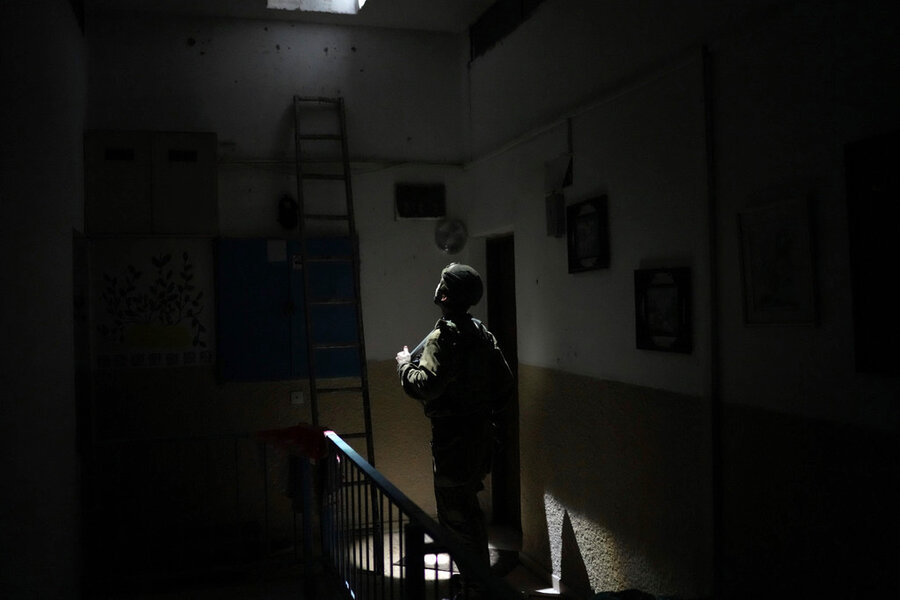Useful reckonings in Mideast conflicts
Loading...
An intensifying exchange of artillery fire across Israel’s northern border with Lebanon has elevated concerns that the crisis in Gaza is spreading into a regional conflict. Within those two countries, however, two unusually candid volleys in recent days hint at something else. Amid war, Arabs and Israelis may be sowing seeds of stability through new commitments to democracy.
Hassan Nasrallah, the leader of the Iran-backed Hezbollah in southern Lebanon, declared earlier this month that the war in Gaza has opened “a historic opportunity to completely liberate every inch of our Lebanese land.” In a sermon the following day, Bechara Boutros Al-Rahi, patriarch of Lebanon’s Christian Maronite sect, responded that “we must ... spare Lebanon and the Lebanese, through wisdom and self-restraint, from entering [the] war.” He added, “The decision on war and peace rests exclusively with the government ... in line with the Constitution.”
A similar exchange occurred last night in Israel. In a press conference, Prime Minister Benjamin Netanyahu vowed to “continue the fight with full force” in Gaza until Israel had achieved “total victory over Hamas,” the militant Palestinian group that had governed the enclave and attacked Israel last October. That pledge met a rare open rebuke from former military chief Gadi Eisenkot, an observer to the country’s war Cabinet. “It is necessary,” he said in a TV interview, “to return the Israeli voter to the polls and hold elections in order to renew trust because right now there is no trust.”
Such affirmations of democratic principles reflect how, in times of war, negatives can sometimes galvanize positives. As the Global Security and International Affairs program at the American Academy of Arts & Sciences recently noted, a breakdown of civilians’ trust in institutions and politicians during conflict “in certain cases ... may indicate that democracy is functioning.”
Two new polls provide a granular view of the Israel-Hamas war’s impact on Arab public thought. Several metrics show increased solidarity with Palestinians since the start of the war. But two findings, published this week by Arab Barometer, are particularly revealing. One shows that while support for Hamas has tripled in the West Bank since October, it has barely moved in Gaza. Both measure discontent over corruption and governance – with Hamas in Gaza, where it has governed; and with the Palestinian Authority in the West Bank, where it governs.
The survey confirmed that disenchantment in a second way: 51% of Palestinians would refuse to vote in an election contested by the current leadership of either faction.
“What Arab publics want most from democracy is not elections but other integral elements: less corruption, better services, more effective governance, greater individual freedoms, and economic opportunity,” according to the Washington Institute for Near East Policy.
That may be what compelled Abdallah Bou Habib, Lebanon’s caretaker foreign affairs and emigrants minister, to affirm last month that his government remains committed to “diversity, pluralism, and peaceful coexistence.”
It may also be the most important factor motivating Arab leaders to seek a diplomatic formula for ending the conflict in Gaza. Since the start of the war, public opposition to normalizing ties with Israel has risen by as much as 30% in countries that have already taken that step or were moving in that direction, according to a survey published last week by the Arab Center for Research and Policy Studies in Doha, Qatar. Arab citizens are pointing their discontent toward their own governments as much as at Israel.







